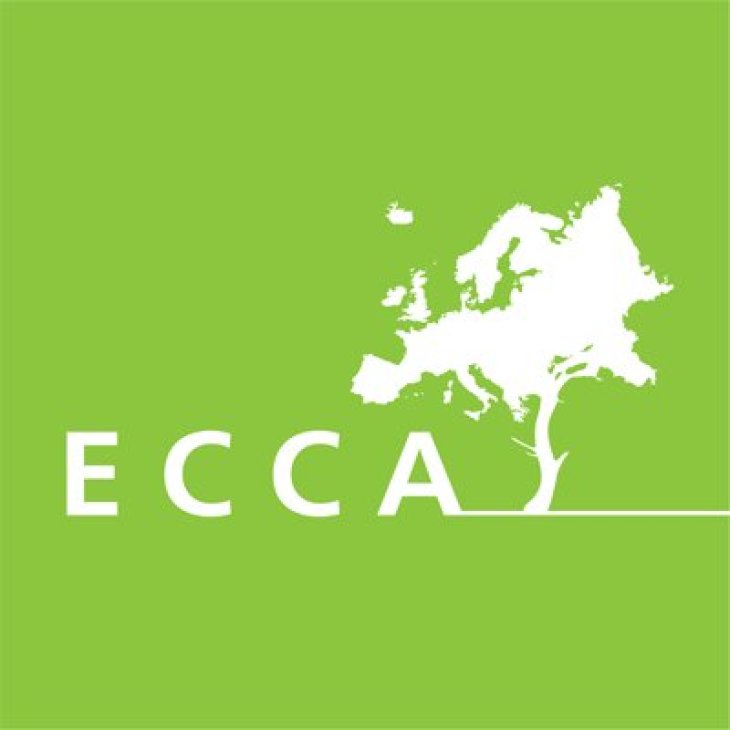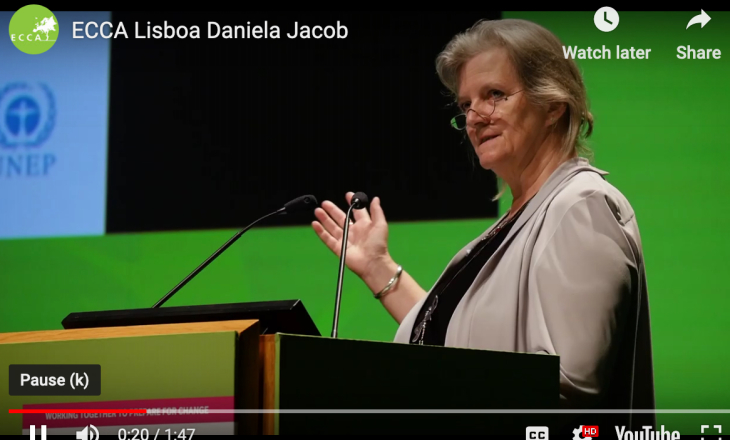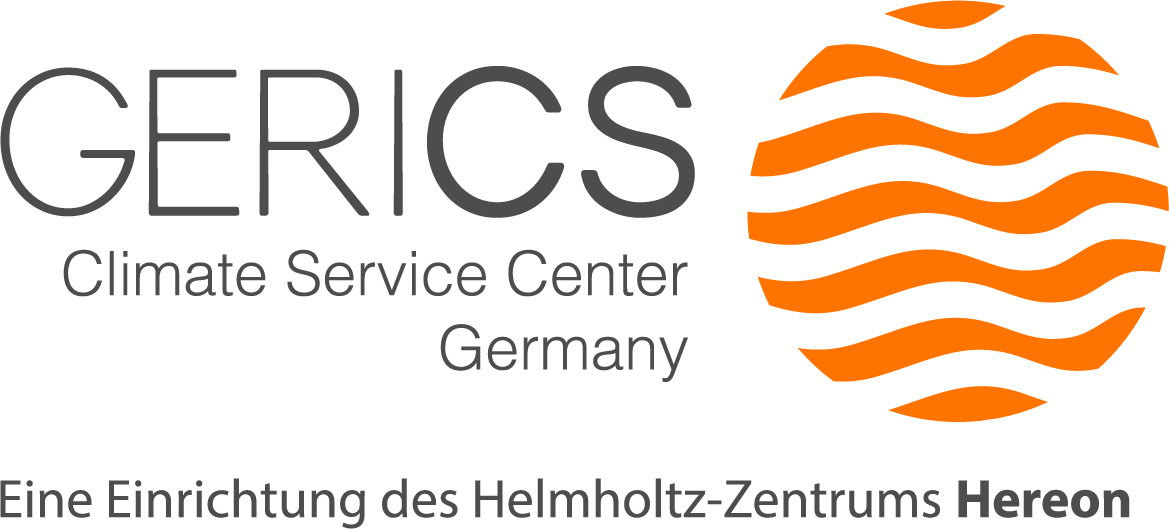GERICS auf der ECCA 2019
European Climate Change Adaptation Conference 2019 vom 28. – 31. Mai 2019 in Lissabon

Die ECCA zählt zu den größten Konferenzen zum Themenbereich „Anpassung an den Klimawandel“. Sie findet alle zwei Jahre in Europa statt. Akteure aus Wissenschaft, Politik sowie Praxispartner und Nichtregierungsorganisationen kommen zur ECCA, um die Anpassung an den Klimawandel auf globaler und lokaler Ebene voranzubringen und um neue Forschungsergebnisse und Umsetzungserfahrungen von Anpassungsprojekten vorzustellen.
Am Dienstag, den 28. Mai wurde die Veranstaltung mit einer Plenarsitzung eröffnet, in der Daniela Jacob einen Vortrag über die Kernaussagen des IPCC Sonderberichts zu 1,5°C globaler Erwärmung hielt.

"Daniela Jacob from the Climate Service Center Germany – GERICS highlights the importance of the IPCC report, 1.5 degrees. The report highlights how the impact, extremes and vulnerabilities experienced will be less if we limit warming to 1.5 degrees rather than 2 degrees. She also comments that the changes needed are doable if we all take steps to reduce our carbon footprints, but that industry use take responsibility too. Daniela goes on to say how important it is to share knowledge so it is transferable and leads to action." (zitiert nach ECCA 2019/Youtube)
Kurzes Interview mit Daniela Jacob zu ihrem Keynote Vortrag
GERICS war als Ausrichter von Sessions auf der ECCA vertreten.
- “Knowledge integration as science based-decision making for adaptation strategies” Adaptation strategies to reduce the negative effects of climate change are needed at every institutional level. The development of these strategies is a complex process involving variety of actors from scientist and policy makers to civil society members.
Chair - María Máñez Costa - “Climate services and methods for hydrology and flood control” Summary of research and experiences with co-production of knowledge, solutions and services – models, web-based tools, apps – that focus on the water sector, addressing risks and opportunities in the management of floods and droughts in Europe.
Chair - Louis Celliers - "User expectations for a European Climate Prediction System" This session brought together climate modelers and societal stakeholders to discuss potential applications of seamless climate predictions in Europe on time scales from 1-40 years. One of the major key issues is the development of a climate service that will directly benefit the users by offering a seamless and robust climate information with clear and comprehensive documentation of uncertainties.
Chair - Sebastian Bathiany - "The water-energy-land nexus under climate change: from adaptation and mitigation case studies to services, products and implementation challenges" Chair - Roger Cremades
- “Climate services and methods for agriculture and food production” Showcase of examples of co-production of knowledge, solutions and climate services focused on the agricultural and food production sectors in Europe and selected developing countries, including different methods and tools – models, apps – to deliver effective solutions.
Chair - María Máñez Costa
sowie mit zahlreichen weiteren Vorträgen:
- "Presentation of the INNOVA-Project" Louis Celliers
- “Knowledge integration as science based-decision making for adaptation strategies” Eulalia Gomez
- "Learning from the south on drought management: Conditions for successful policy learning" María Máñez Costa
- "Climate change adaptation options for the European water sector" David Williams
- “Modelling the Inland Waterway Transportation Operations Supported by Navigation-Related Probabilistic Forecasts under Projected Drier Climate" Conditions” Dmitry Kovalevsky
- "Climate Services and the water-energy-land nexus: if we fail on one, we will fail on the other?" Roger Cremades
- “The system dynamics of the nexus in the tourism sector" Roger Cremades / Muhamad Bahri
- "The GERICS Regional Modelling Toolkit: Towards an integrative modelling approach for science-based decisions to create cross-sectoral, regional climate adaptation" Elisabeth Viktor
- “EU LIFE programme: Supporting integration and co-production of climate change adaptation in small and medium-sized municipalities across the EU” Torsten Weber / Jörg Cortekar
- “Simulating complexity of urban systems in the context of climate change through system dynamic modelling” Dmitry Kovalevsky / Cristóbal Reveco
Auf einem ECCA Side Event, ausgerichtet von JPI Climate am Montag, den 27. Mai zum Thema „Climate services: state of affairs, relevance for users and the way forward“, hielt Daniela Jacob einen Keynote Vortrag und Jo-Ting Huang-Lachmann stellte das ERA4CS / H2020 Projekt INNOVA vor.
ECCA Side Event: Climate services: state of affairs, relevance for users and the way forward
